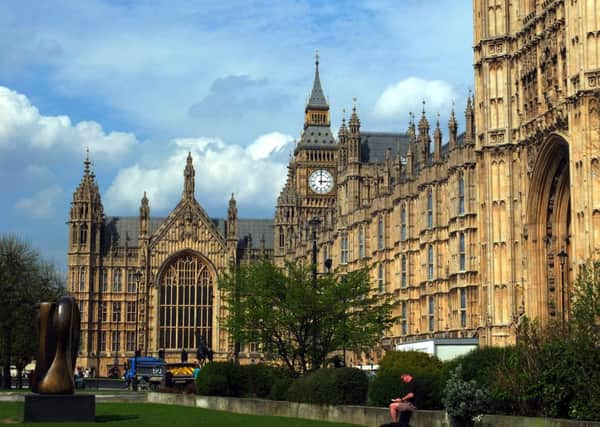Leaders: Ipsa must heed MPs’ pay rise disapproval


Welcome to the Alice in Wonderland world of the Independent Parliamentary Standards Authority and its continuing insistence, amid widespread hostility, to award MPs an inflation-busting pay rise of 11 per cent to £74,000 from 2015.
Prime Minister David Cameron has called it “inappropriate”. Labour leader Ed Miliband wants talks between the party leaders. Liberal Democrat leader Nick Clegg is also opposed. Many MPs have said they will not accept the increase. Others say they have to take it. That is palpable nonsense. As for public opinion which has been strongly negative, Ipsa chief executive Ian Kennedy says opinion was “more nuanced” than the “outrage” suggested.
Advertisement
Hide AdAdvertisement
Hide AdBut what right has Ipsa to judge the state of public opinion and precisely how “nuanced” it is? What evidence has it got, other than its own subjective surmise on a proposal that it itself has put forward?
No serious observer would wish to revert to the old system of MPs determining their own pay. And Ipsa has made serious and sensible suggestions on changes to other elements of MPs’ remuneration and pension contributions, which would have the effect of balancing out the cost of the proposed pay increase.
But this is not quite the point. Ipsa cannot be left to be judge and jury on this matter. It, too, has an obligation to take into account the wider circumstances of its proposal, its timing and the views both of MPs and the general public. The public finances are still in a highly fragile state. The budget deficit is set to rise between now and 2017-18 by a further £361 billion. And the grand total of Public Sector Net Debt is on course to rise to £1.58 trillion over this period, or £64,000 per household. The idea that Ipsa can play Lady Bountiful in regard to MPs’ pay is frankly absurd.
No less offensive is the timing of this recommendation. For more than four years average pay across the UK has lagged inflation. Household incomes continue to be squeezed and sacrifices are still having to be made. Many have dipped in to their stock of savings. The timing of Ipsa’s proposal could scarcely be worse.
As for its arguments for the pay rise, Ipsa itself says it is not convinced that the current salary was putting talented people off becoming an MP. Nor, it argues, was the salary hike justifiable as compensation for less generous pensions or expenses payments.
Its own reservations only add to the case for any rise in MPs’ pay at this time to be limited to the increase in average earnings, and for any further increases to be deferred to a period when the state of the economy and the public finances more clearly warrant it. That is not the case now.
Drive for safer cycling is welcome
One of the biggest deterrents to the encouragement of cycling in our congested towns and cities is the frequency of accidents involving cyclists and lorries. In the capital city two cycling deaths in 2011 and 2012 involved incidents with goods vehicles. If the city is to succeed in its drive to encourage people to cycle, and meet its own target of 15 per cent of journeys to work by bike by 2020, there is a compelling need to improve the safety of those choosing to travel by bike. At present just 7 per cent of journeys to work in Edinburgh are made by bike.
Given the fatalities and the evident apprehensions shared by many would-be cyclists, the decision of Edinburgh City Council to follow the example of Transport for London and introduce a pilot scheme early next year for on-street cycle awareness training for lorry drivers is wholly to be welcomed. The training would involve practical on-road cycle training for drivers to help them appreciate the concerns facing cyclists as vulnerable road users. Drivers would be given a better understanding of cyclists’ behaviour so that collision risks can be minimised. If the pilot scheme is successful, the council intends to roll it out across the whole lorry fleet by the end of 2015 making it the first local authority in Scotland to do so.
Advertisement
Hide AdAdvertisement
Hide AdNone of this should detract from the continuing need for other action to make those areas where motorised traffic and cyclists meet safer for both. There is a clear need to minimise deaths and injuries and to encourage more cyclists. In the meantime, the Edinburgh awareness training scheme is a positive initiative and one which the Scottish Government should consider with a view to introducing nationwide.